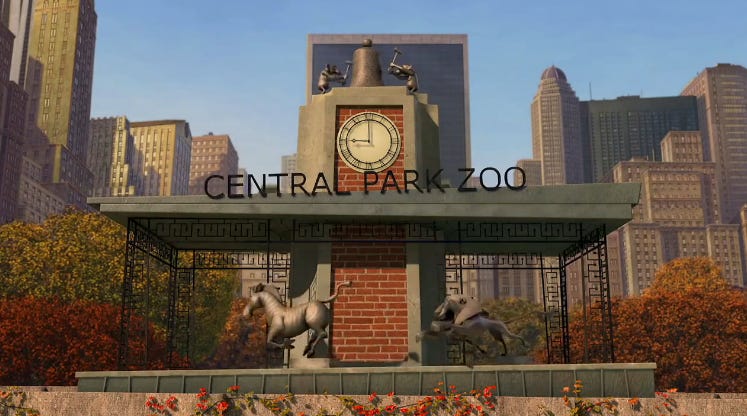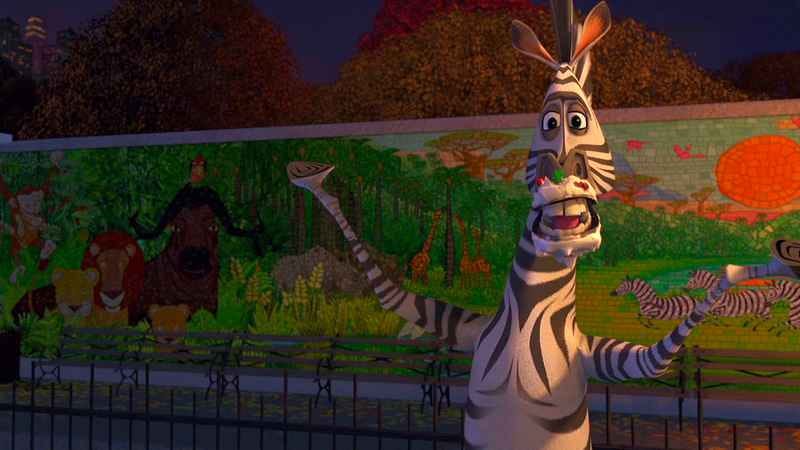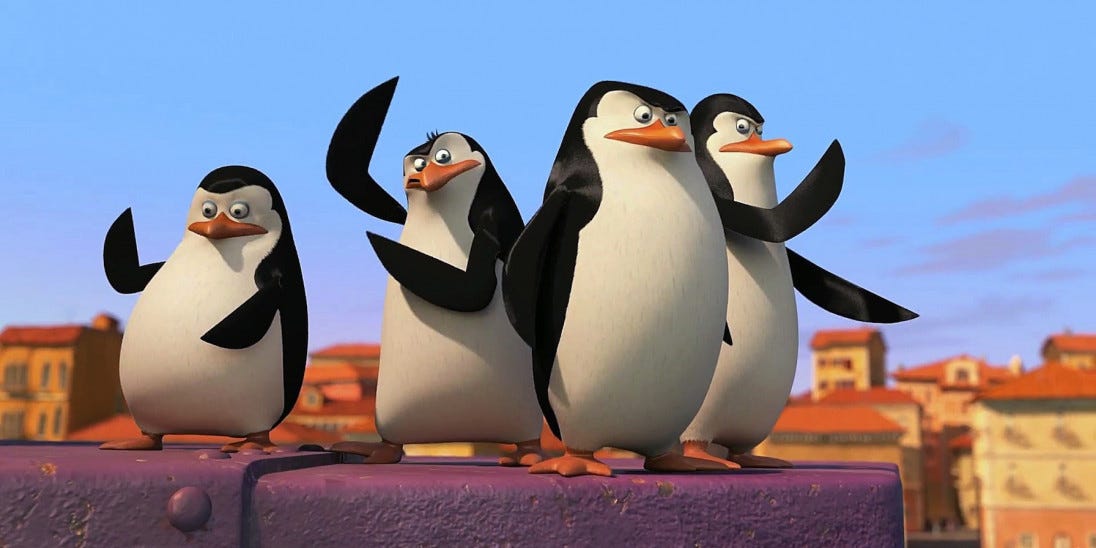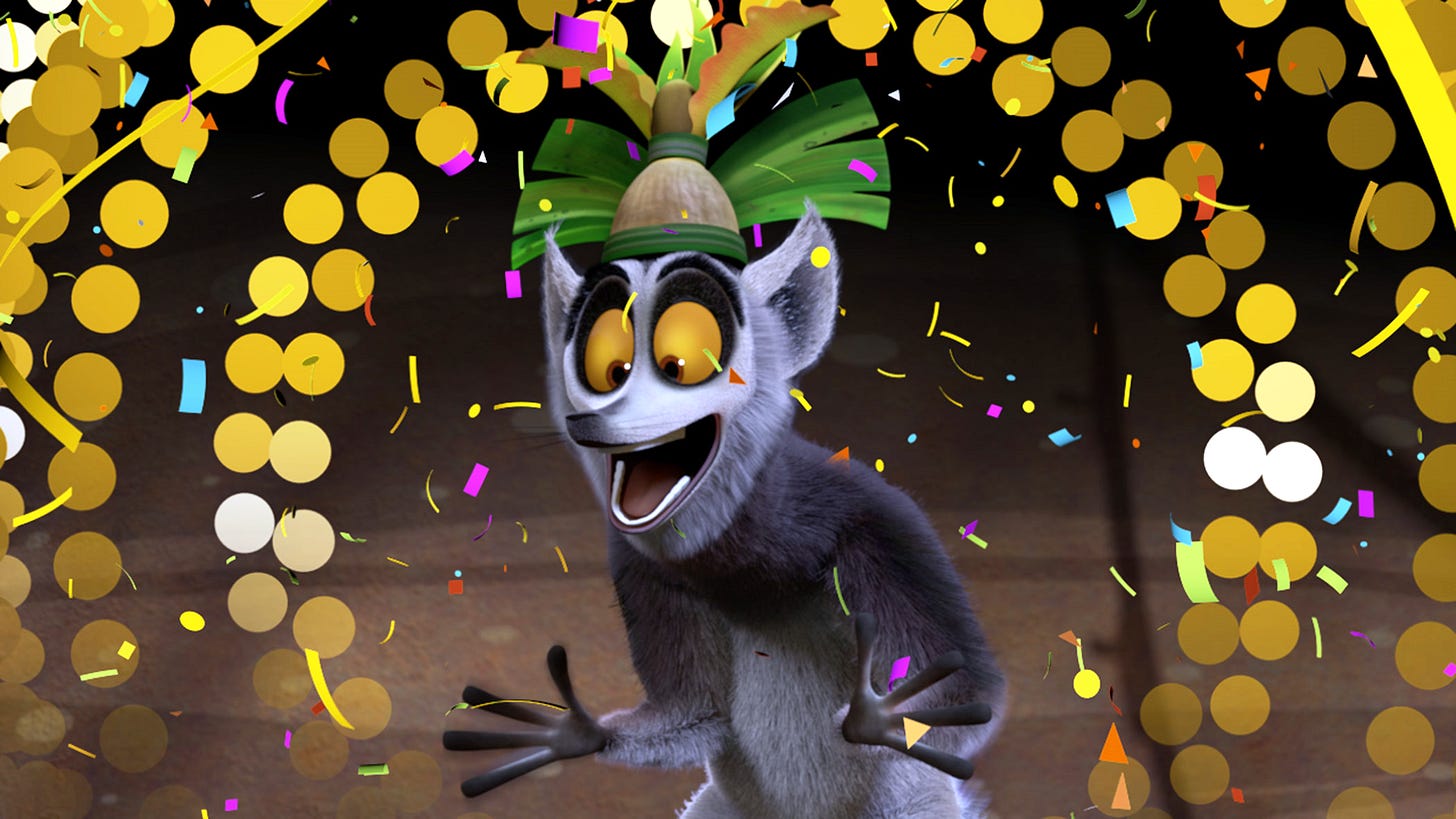Madagascar: A Purposeful Parable for Our Times
During the Christmas holidays, you can be sure of three things - lots of family time, lots of food and lots of decent films on TV.
Over the holidays, to calm down my overexcited (and probably over-sugar-stimulated) kids, I sat them down and watched an oldie but a goodie - the classic Madagascar.
It actually worked - it calmed them down and gave us all some much-needed peace and quiet. But it actually had a different effect on me - I realised the entire movie (which I’d watched many times before) had a new, profound, much deeper meaning all of us can learn something from.
Having now watched from a completely different lens, let me take you through some of my findings.
The film begins at the world-famous Central Park Zoo, home to Alex the lion, Marty the zebra, Melman the giraffe, and Gloria the hippo. They live a very comfortable existence, amongst the most popular attractions, and life for Alex, Marty, Melman, and Gloria is seemingly perfect.
The Zoo: A Metaphor for Conformity and Ease
They are, as King Julien later refers to them, "just a bunch of pansies” which highlights how relaxed, yet unchallenging, their zoo lives are. It's a life that's safe but confines them from exploring their true selves, and their own ‘fitrah’.
The Zoo symbolises the comfortable but limiting confines we find ourselves in. It represents our societal norms, the invisible cages we all live in. They live in a world where stepping out of line is discouraged, demonstrated by Alex's reluctance to disrupt the status quo – "We can't call the people. They'll be really mad! They'll get Marty transferred for good! You don't bite the hand that feeds you". This echoes our own fears - a fear of making mistakes, a fear of repercussions for challenging the system, a fear of losing our livelihood, a fear of losing the safety of our 'zoo'.
This zoo is like our own safe spaces – our routines and societal norms that offer comfort but often limit our true potential. It's a familiar world where many of us currently live, painfully unaware of the wildness of spirit that lies dormant within.
So they have to conform and perform for the paying customers. Some love it - Alex the lion for example, loves being the centre of attention and appreciated. He has “Uber Eats” level convenience - fresh steaks are brought to him on tap. He enjoys his central role as chief entertainer, and even develops special party tricks to bring more to his role.
Marty’s Identity Crisis
But Marty the zebra, longs for something deeper. He knows there’s something more out there and feels he hasn’t explored anything of the world - not least himself. He goes through an existential crisis – "I'm ten years old. My life is half over and I don't even know if I'm black with white stripes or white with black stripes!" - speaks to the common human experience of reaching a milestone point in life, without truly understanding who we are, where we belong or what we are here to do.
It's a powerful moment and very symbolic of the ongoing human quest for identity and understanding, which will resonate with anyone who has ever questioned their place in the world.
Taking the Leap and Embracing the Unknown
The journey to Madagascar marks a drastic shift for the friends from extreme luxury and comfort to the unknown, in the pursuit of their self discovery.
Skipper, the leader of the penguins, shares a profound secret with Marty: "Do you ever see any penguins running free around New York City? Of course not. We don't belong here. It's just not natural."
This conversation is a pivotal moment, as it captured the essence of breaking free from the unnatural constraints we put up with, to seek a life that's more in tune with one's innate nature.
Do we really question what is truly natural? Or do we just go with the flow?
This is where the concept of fitrah and understanding one’s true self is beginning to materialise in the movie.
Discovering Their True Selves in the Wild
In the wild climate of Madagascar, we can see the characters confront their fears and true selves. Alex grapples with his true predatory nature and realises he is a hunter at heart - NOT a pansy. His environment and the system he was in had just made him that way.
Not being fed steaks and having to find his own food, he begins to salivate at the sight of meat - even that of his own friends - to the extent where Alex loses control and attacks Marty.
Realising what he has done and feeling sad and guilty for attacking his friends, Alex flees to the predator side of the island, where the fossa (other predators) live.
Seeing what Alex has become and how dangerous the wild can be, Marty regrets his decision to leave the zoo.
This naturally happens on the path of exploring your own way, especially when things get difficult. You seek the comfort you once enjoyed. You find these new challenges difficult to overcome and feel overwhelmed. But you have to stick it out, and eventually you find a way.
And that’s what happens here. When Marty and his friends are attacked by the Fossa, Alex is able to overcome his own nafs (desires) and stands up to protect his friends from them. In celebration, he is offered sushi - which he discovers he likes even more than steak. This means he can spend time with his friends without fear.
All of the other characters also go through transformation in the scary wild - Marty embraces the freedom of the open plains, Melman finds courage beyond his anxieties, and Gloria discovers her leadership qualities. Courage, leadership, freedom, strength, balance, discipline. All great things and more that are obtained by embracing our true nature and facing our biggest fears head on.
You have to go through the wild and beyond, to find yourself sometimes and fulfil your true potential. This is one of the most transformative things we can do. Success and greatness never came easy, to anyone. You’ll undoubtedly have to go through the proverbial jungle to get there. Or you can play it safe in the zoo and be medicore, forever.
"Move It, Move It" as the mantra for life
The famous song from the film, King Julien's "Move it, move it" is actually very apt - it’s not just a catchy phrase (with even crazier dance); it is the ultimate call to action on how to live our life. Always keep moving, keep growing. It urges us to move beyond complacency, step out of our comfort zones, to explore and embrace our fitrah, to break free from the familiar and ‘move it move it’ towards a journey of learning, self-discovery and self-actualisation.
Like the characters in Madagascar, we are often stuck in our metaphorical zoos, but the pursuit of fitrah and self-discovery beckons us to break free and venture into the wild - where we are forced to confront our demons and fears heads on – to finally get to a life of purpose, authenticity and fulfilment.
Do you recognise any of these elements within your own life?
As you navigate through our own 'Madagascar' journeys of life, you will find that breaking free from your zoos, embracing the wild, finding your fitrah, facing your fears and ‘moving it’ (taking action) are essential steps towards achieving your potential.
Through this watch over the holidays, I realised that Madagascar is more than an entertaining film to keep my kids occupied; it’s almost a parable for our times, urging us to explore, to question, to find our true essence, and a reminder that the journey towards finding our purpose is one of the most fulfilling and transformative journeys we can embark on.
My kids, by the end of the movie though were fast asleep.
Oh well.
I had fun at least.
If you find that you are having a ‘Madagascar moment’ like Marty, I’d love to help you explore your way through this on a call. You can book in a free self-discovery call at the button below. I may have just the thing to help you.










